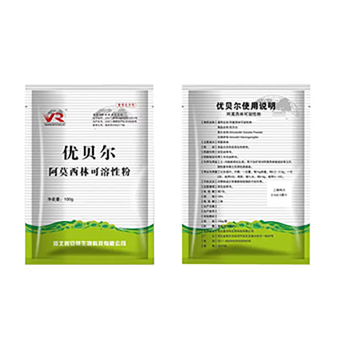- Afrikaans
- Albanian
- Amharic
- Arabic
- Armenian
- Azerbaijani
- Basque
- Belarusian
- Bengali
- Bosnian
- Bulgarian
- Catalan
- Cebuano
- Corsican
- Croatian
- Czech
- Danish
- Dutch
- English
- Esperanto
- Estonian
- Finnish
- French
- Frisian
- Galician
- Georgian
- German
- Greek
- Gujarati
- Haitian Creole
- hausa
- hawaiian
- Hebrew
- Hindi
- Miao
- Hungarian
- Icelandic
- igbo
- Indonesian
- irish
- Italian
- Japanese
- Javanese
- Kannada
- kazakh
- Khmer
- Rwandese
- Korean
- Kurdish
- Kyrgyz
- Lao
- Latin
- Latvian
- Lithuanian
- Luxembourgish
- Macedonian
- Malgashi
- Malay
- Malayalam
- Maltese
- Maori
- Marathi
- Mongolian
- Myanmar
- Nepali
- Norwegian
- Norwegian
- Occitan
- Pashto
- Persian
- Polish
- Portuguese
- Punjabi
- Romanian
- Russian
- Samoan
- Scottish Gaelic
- Serbian
- Sesotho
- Shona
- Sindhi
- Sinhala
- Slovak
- Slovenian
- Somali
- Spanish
- Sundanese
- Swahili
- Swedish
- Tagalog
- Tajik
- Tamil
- Tatar
- Telugu
- Thai
- Turkish
- Turkmen
- Ukrainian
- Urdu
- Uighur
- Uzbek
- Vietnamese
- Welsh
- Bantu
- Yiddish
- Yoruba
- Zulu
Nov . 13, 2024 06:55 Back to list
gentamicin sulfate use
Gentamicin Sulfate Use A Comprehensive Overview
Gentamicin sulfate, an aminoglycoside antibiotic, has been widely used in the treatment of various bacterial infections, particularly those caused by Gram-negative organisms. First discovered in the late 1960s, gentamicin has since become a critical component of antimicrobial therapy due to its potent bactericidal activity, favorable pharmacokinetics, and effectiveness against resistant strains of bacteria.
Mechanism of Action
Gentamicin works by binding to the 30S ribosomal subunit of susceptible bacteria, inhibiting protein synthesis. This disruption leads to the production of malformed proteins and ultimately causes cell death. The antibiotic is particularly effective against aerobic Gram-negative bacteria, such as Pseudomonas aeruginosa, Escherichia coli, and Klebsiella pneumoniae. It is also occasionally used for the treatment of some Gram-positive infections, most notably in synergy with other antibiotics like β-lactams for better efficacy.
Clinical Indications
Gentamicin is commonly used in various clinical settings, particularly in hospitals where severe infections can arise. It is often indicated for
1. Sepsis Gentamicin is a key player in the empirical treatment of sepsis, a life-threatening condition characterized by systemic inflammation due to infection. Its rapid action against multidrug-resistant organisms makes it an essential choice in severe cases.
3. Respiratory Infections The antibiotic is also utilized in treating patients with pneumonia, especially those with a risk of infection from multidrug-resistant pathogens.
4. Ocular Infections Gentamicin sulfate is available as eye drops and ointments for treating conjunctivitis and keratitis caused by susceptible bacteria.
gentamicin sulfate use

5. Bone and Joint Infections It is sometimes used in combination with other antibiotics to treat osteomyelitis or infected joint prostheses, where achieving high local concentrations of the drug can be beneficial.
Dosage and Administration
Gentamicin can be administered intravenously or intramuscularly, with dosing regimens adjusted based on the severity of infection, renal function, and patient characteristics. Therapeutic drug monitoring is essential to ensure optimal plasma levels and minimize the risk of toxicity, particularly nephrotoxicity and ototoxicity, which are associated with aminoglycosides. Adjustments in dosage may be necessary for patients with impaired renal function to prevent accumulation and adverse effects.
Side Effects and Toxicity
While gentamicin is highly effective, it is not without risks. The most significant concerns involve nephrotoxicity and ototoxicity. Nephrotoxicity manifests as acute kidney injury, which may result from high trough levels of the drug. Ototoxicity can lead to irreversible hearing loss or balance disturbances. Hence, routine monitoring of renal function and hearing ability is crucial during prolonged therapy. Patients should be adequately hydrated, and the minimum effective dose should be used for the shortest duration necessary.
Resistance Issues
The emergence of antibiotic-resistant bacteria has raised significant concerns surrounding the use of gentamicin and other antibiotics. Mechanisms of resistance include enzymatic alteration of the drug and changes in bacterial permeability. Continued surveillance and proper antibiotic stewardship are necessary to minimize resistance development and preserve the efficacy of gentamicin.
Conclusion
Gentamicin sulfate remains an essential tool in the arsenal against serious bacterial infections, especially within hospital settings where resistant pathogens pose a significant threat. Its proven efficacy, combined with the potential for serious side effects, necessitates careful consideration and monitoring in clinical practice. As the landscape of bacterial resistance evolves, the judicious use of gentamicin, along with ongoing research and development of newer therapeutics, will be vital in ensuring effective treatment outcomes for patients suffering from severe infections.
-
Guide to Oxytetracycline Injection
NewsMar.27,2025
-
Guide to Colistin Sulphate
NewsMar.27,2025
-
Gentamicin Sulfate: Uses, Price, And Key Information
NewsMar.27,2025
-
Enrofloxacin Injection: Uses, Price, And Supplier Information
NewsMar.27,2025
-
Dexamethasone Sodium Phosphate Injection: Uses, Price, And Key Information
NewsMar.27,2025
-
Albendazole Tablet: Uses, Dosage, Cost, And Key Information
NewsMar.27,2025













